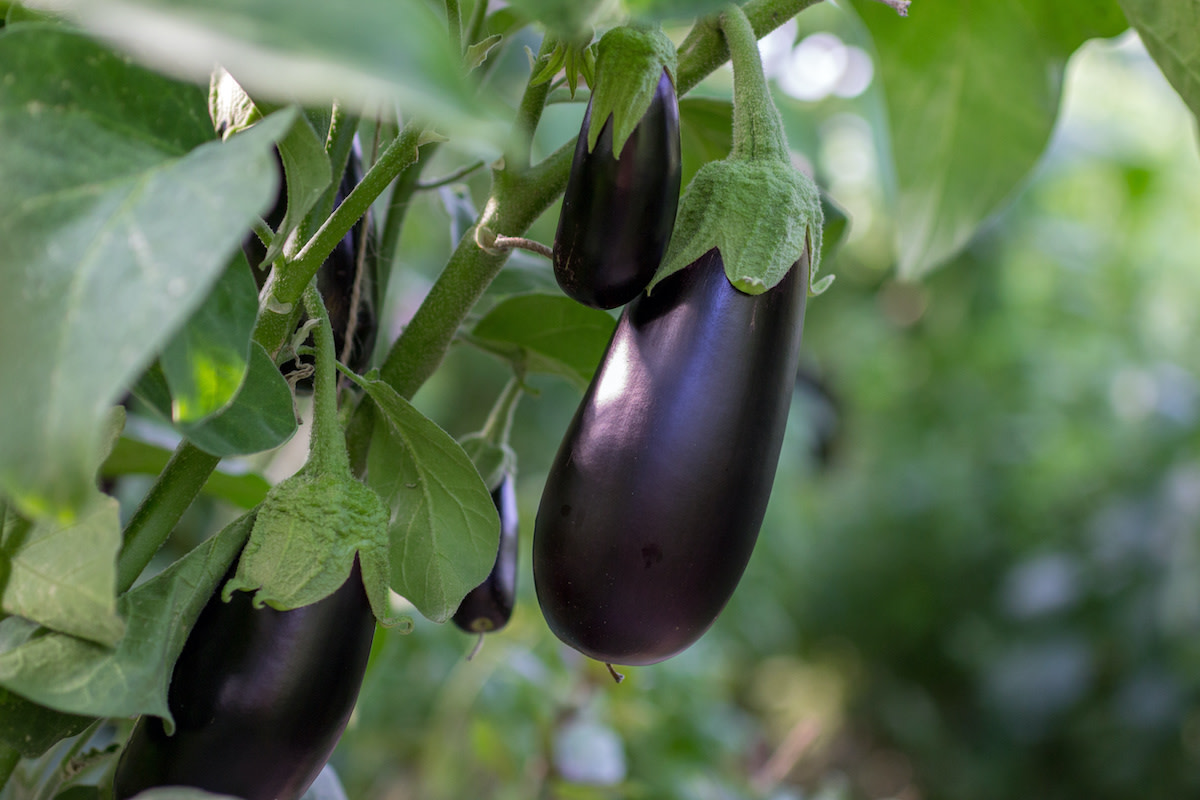How to Grow Eggplant in Your Garden: 5 Eggplant Care Tips
Written by MasterClass
Last updated: Jun 7, 2021 • 3 min read
With its deep-purple hue, the venerable eggplant is a great plant to grow in your home garden. While the warm-weather vegetable has a long growing season, it’ll be worth the wait once you make a perfect eggplant parmesan with the fruits of your labor.
Learn From the Best
What Is Eggplant?
Eggplant (solanum melongena), or aubergine, is a perennial, warm-season vegetable from the nightshade family. Eggplants come in a variety of sizes, shapes, and colors. The most common eggplant variety in the US is the globe eggplant: this hefty variety has glossy, deep-purple skin and spongy fruit. Other commonly cultivated varieties include white eggplants (used in Middle Eastern dishes like baba ganoush), Thai eggplants, Black Beauties, Ichiban, Rosa Bianca, and Little Fingers.
When to Plant Eggplant
Eggplants are a warm-season crop that cannot tolerate frost or freezing temperatures. Eggplants can only grow in warm soil—50 degrees Fahrenheit or above. The best time to plant eggplant is in late spring after the last threat of frost. Eggplants have a long growing season, so you’ll need to start them indoors around eight weeks before your region’s last frost date.
How to Plant Eggplant
You should begin germinating eggplant seeds indoors about two months before the last frost date in your area. To learn how to start seeds indoors, check out our step-by-step guide. Once the weather warms in your region, you can transplant eggplants into your home garden.
- Choose the site. Eggplants prefer full sun. Choose a planting area that gets at least six hours of direct sunlight per day.
- Prepare the soil. Eggplants prefer loamy, well-draining soil with a pH between 6.0 to 6.5. If you’re unsure whether your soil is alkaline or acidic, you can perform a soil test. Check out our soil testing guide for a step-by-step tutorial. Adding a layer of black plastic mulch to the topsoil will help warm the soil before you transplant the seedlings.
- Transplant. Eggplants need ample space to grow. Transplant the eggplant seedlings at least two to three feet apart, in holes approximately one-inch deep, without disturbing the root ball. Cover the seedlings with a half-inch of soil.
- Water. Water the planting area well to settle the soil.
How to Grow and Care for Eggplant
The gardening tips below will help your eggplants grow into healthy plants:
- 1. Water. Eggplant and all other nightshade vegetables need generous watering to grow. Eggplants need about an inch of water per week, depending on the soil moisture. If the soil feels too dry, add an extra inch of water. When the weather is cooler in early spring, water your eggplant about once a week, increasing to two or three times per week when the air temperature rises.
- 2. Consider companion planting. Eggplant makes a good companion plant, meaning you can plant them near other vegetables, such as cauliflower, tomatoes, or aromatic flowers. There are many benefits to companion planting, like improved plant growth, pest control, and maximizing garden space.
- 3. Use a natural or organic pesticide. Eggplant is prone to pests like flea beetles, aphids, Colorado potato beetles. Critters or insects snacking on your vegetables are an inevitable part of maintaining your own garden. For pest control, use an organic or noninvasive pesticide. There are also many recipes for making your own natural pesticide at home.
- 4. Compost and mulch your soil. The organic and biological materials living in compost activate the soil's contents (which include fungi, bacteria, minerals, among others). The soil’s contents promote strong immunity in your plants and also expands the life of your crops. You should amend the soil with a balanced fertilizer and organic matter during the growing season to keep the soil evenly moist.
- 5. Weed often. Weeding your garden is an essential step for proper eggplant maintenance. Make weeding part of your everyday gardening routine. You'll want to weed in the morning when the soil is damp, making it easier to remove the weeds. Weeding often can prevent fungus or verticillium wilt from infecting your plants.
How to Harvest Eggplant
Eggplants do not mature until around the 100-day mark, but you should not wait that long to harvest because young eggplants have the best taste. Prepare to harvest eggplants around 70 to 80 days after transplanting. If your eggplant is about six to nine inches and its skin is glossy, you can begin harvesting.
Harvest eggplants with a sharp tool, such as pruning shears or a small knife. Separate the eggplant from its stem. Leave about two inches of the stem on the plant, so it can continue to grow.
Learn More
Grow your own food with Ron Finley, the self-described "Gangster Gardener." Get the MasterClass Annual Membership and learn how to cultivate fresh herbs and vegetables, keep your house plants alive, and use compost to make your community - and the world - a better place.
